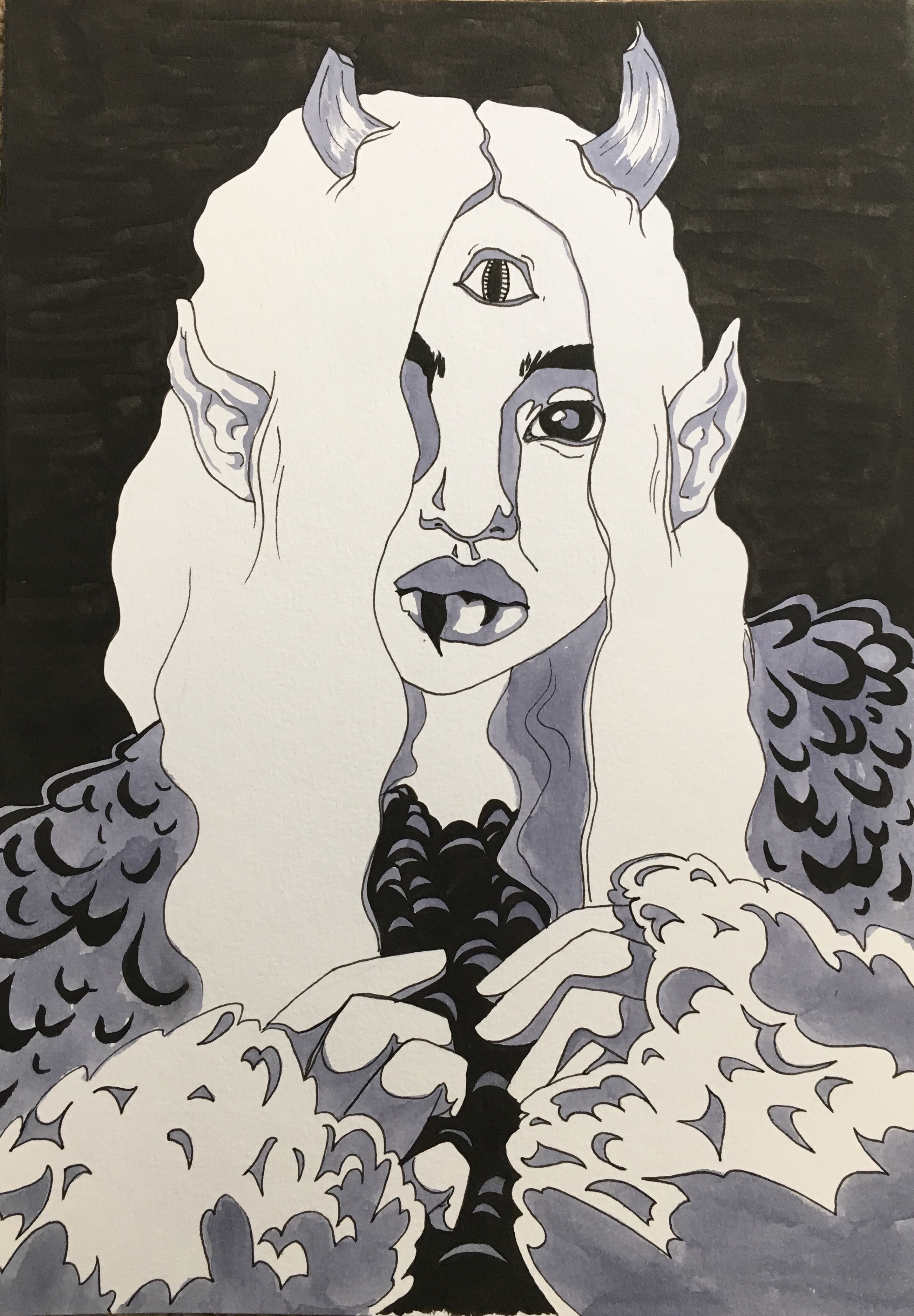It is a well-known fact that even the most good of the Good Folk do not feel pity. Curiosity? Certainly. Pride? Naturally. And because they feel pride, they of course feel embarrassment. It is a combination of these three emotions – curiosity, pride, and shame – which has created in Marigold Fallowfield a counterfeit empathy.
Curiosity is what draws her from her own realm into ours. She wants to know what wanting is – for in her realm she wants for nothing she can imagine. She imagines quite meticulously, does Marigold, so meticulously that what she imagines becomes real before her eyes. She seeks to share this faculty with the mortals she encounters. She is proud of it, after all, and eager to learn what people want who cannot have whatever they want.
The trouble is that the humans are not used to imagining in detail, the way Marigold does, and so she never quite understands their wishes. A poor farmer will ask her for a bottomless purse of gold coins, only to curse her when the purse spills coins constantly from its missing bottom, drowning him and his family in gold that will in any case turn to straw in daylight. A proud young woman will ask to be the most beautiful girl in town, only to recoil in horror when every other girl in town wakes up disfigured. These humans simply never specify their wishes, leaving whole chunks of them for Marigold to imagine on their behalf. And somehow her imagination never lines up with theirs.
She’s ashamed of these apparent failures. After all, she never fails at imagining for herself. These humans are getting entirely the wrong idea about her. They accuse her of malice, of stealing their souls! She does no such thing! She’s doing this work pro-bono. It’s not her fault a human can’t tell whether or not it still has a soul! If only, she thinks, if only they would be clearer when describing their hearts’ desires!
She’s tried so many things; she tells them to think carefully, and to speak slowly. She asks them if they are sure. She’s even changed her aspect into something more apparently sinister, so that they might feel some gravity to the situation. She asks clarifying questions, but never seems to ask the right ones. Even the time she asked, “you mean you want me to make you into the smartest man in the world?” the human nodded happily enough, but later seemed quite unhappy to end up in the body of the king’s astronomer – and what’s more, the king’s astronomer seemed very unhappy to end up in the body of a swineherd!
And so Marigold feels something like pity for the humans who she hopes to help. Well, not for them exactly – for herself for failing to please them. But let’s not split hairs. After all, isn’t that more or less what empathy is: Feeling bad when another person feels bad, even if you don’t understand quite why?
Category: Lucia Feltovich
91. Marigold Fallowfield
89. [I would rather not draw her attention.]
(Follow Lucia Feltovich on Instagram)
She is intentionally beautiful – the only kind of beautiful the Good Folk can be. Her entire appearance, her glamour, is her mental image of herself, as is true of every member of the Court (unless of course they are cursed, in which case their glamour is someone else’s mental image of them.) And so the princess has crafted herself this cascade of weightless hair, these liquid lips, these retreating eyes. She chose the form of her crown as well, but custom dictates she must wear some form of royal headdress, regardless of her wishes. Which makes the crown a sort of curse, one might argue.
They think her shy, but that is just the sort of imprecision she privately finds unforgivable. She is reserved. She does not crave notoriety, a resource all too abundant for an heiress, but rather secrecy. Nor does she pursue friendship, which she has come to equate with favor-seeking, but rather information.
She is engaged in a cold war that she declared unilaterally, of which no one else is aware. The hair she has invented for herself is the favorable terrain through which she conducts her campaigns. It is a smokescreen to hide her suspicious glances. It is a journal into which she whispers the secrets she acquires. It is, above all else, lovely; lovely enough to convince the fawning courtiers that lovely is all she is.
It will be a thousand years or so before she’s Queen. The Good Folk only die when they wish, and they only wish when they are very bored, and they are rarely bored when they have power. This is more than acceptable to her. She has long been aware that there is a great game played between the nations of the Other, a game which, once joined, is never left. She is happy to put off joining the game while she studies its rules. She understands, you see, that as soon as she places her pawn upon the board, her every action will be recorded, scrutinized. Her past gambits will be studied, and her moves ruthlessly predicted. She intends to enter the game with no history at all. She intends to hustle.

![89. [I would rather not draw her attention.]](https://faceaweek.com/wp-content/uploads/2016/12/image2.jpg)